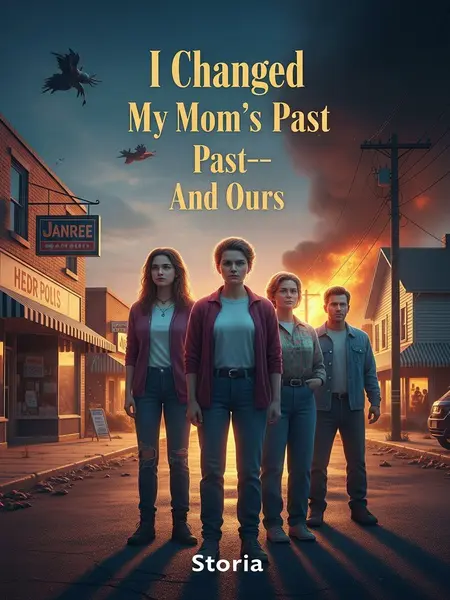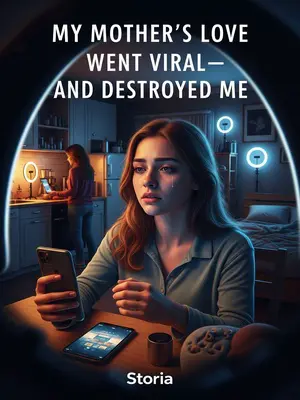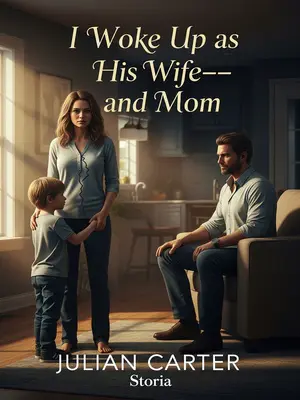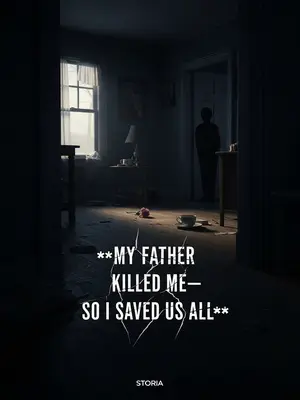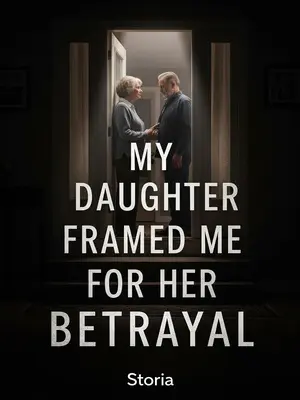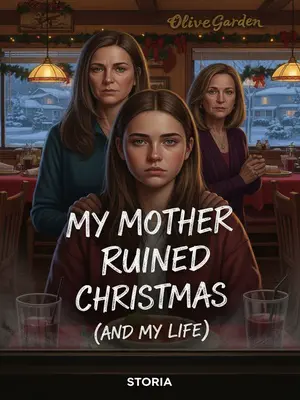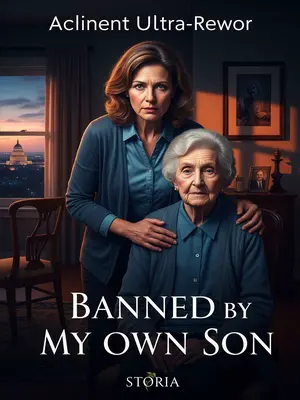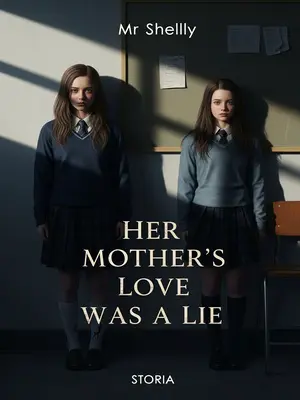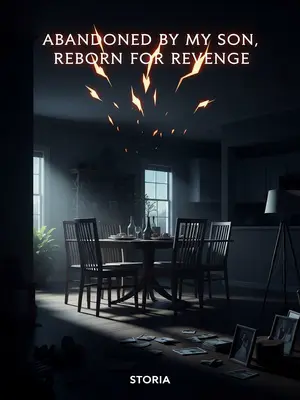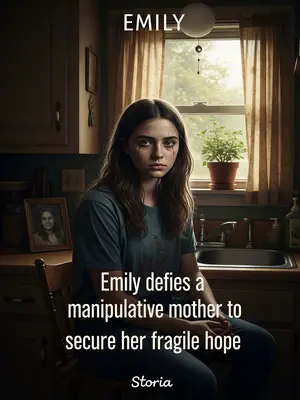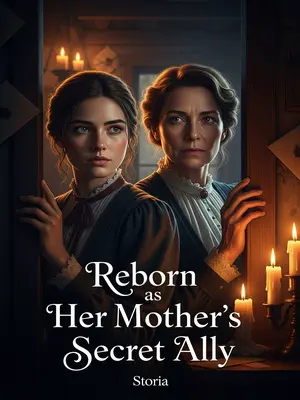Chapter 2: Defying Fate, Making Plans
My heart twisted. Was this really the moment when seventeen-year-old Mom chose the path she’d regret for life?
I wanted to reach out and hug her, to tell her it would all be okay. But the words stuck in my throat, heavy with everything I wished I’d said to her before.
I remembered how, when I didn’t want to study, Mom always patiently advised and encouraged me. But I just found her annoying.
The irony hit hard. How many times had I rolled my eyes, slammed doors, ignored her worry? Now, seeing her as a scared kid, I finally got it.
Regret. Guilt. Love. It all tangled up inside.
I glanced around the room. Right now, just surviving was the biggest problem.
The place was cold, the furniture battered and sparse. The silence pressed in, broken only by the faint ticking of a clock and the distant bark of a neighbor’s dog.
Back then, she really had no other choice.
I thought about all the times I’d judged her, never really understanding what she’d sacrificed. The world felt so small then, every option closing in with each unpaid bill.
But now, things are different. I want to support her, help her keep studying, and change her fate.
Resolve settled in my chest. I wasn’t just a bystander—I could rewrite this story.
I straightened up, mimicking the way she used to sit when she meant business. Sat up, sudden and sharp:
I squared my shoulders, channeling all the sternness I remembered from her lectures. I wanted her to see strength, to believe it was possible to fight back against fate.
"I said you have to study, so you have to study! Don’t worry about anything else!"
Mom was startled by my sudden movement, and Uncle beside her jumped as well.
The air in the room shifted. Even Uncle, usually so quiet, flinched at the sharpness in my voice.
"Starting tomorrow, go out to the woods and pick wild apples. We can sell those for money!"
I tried to sound practical, like I had a plan—even if I was making it up as I went along. Anything to give them hope.
Mom, eyes red, wanted to say something more, but I grabbed her hand:
Her skin was warm, her fingers trembling. I squeezed her hand, hard. "You have to believe me, okay?"
"Study hard. Only by getting an education can you make good money in the future. That’s how our lives will get better."
Even though Mom didn’t go to college, her life wasn’t terrible. But Grandma always looked down on her for not having an education, always saying she wasn’t good enough for Dad. Over time, Mom developed a deep sense of inferiority.
Those words haunted our family, seeping into every argument and quiet moment. I saw now how deep the wounds ran, how much she needed someone to believe in her.
Mom tidied up the plates and went outside. I glanced at the young version of Uncle.
He lingered by the door, not sure if he should follow her or stick around. His eyes darted between me and the door, searching for direction.
Five years younger than Mom. Always in trouble. Always chasing the wrong crowd. On the eve of the SATs, he actually dared to rob a jewelry store in the county! He was already an adult by then, didn’t take the test, and ended up in prison.
The memory was a gut punch. I remembered the shame in Mom’s voice when she talked about him, the way she’d try to hide her tears at family gatherings.
Every time Mom talked about Uncle, she was both loving and resentful. She regretted not raising him better, and also regretted not making him take responsibility for the family sooner.
I could see the weight of those regrets etched into her face, even now. It was a burden she’d carried for years, one I was determined to lighten.
Now that fate has given me this chance, I can’t just save Mom—I have to save him too.
The thought filled me with a fierce protectiveness. I wouldn’t let history repeat itself—not if I could help it.
The next morning, it was already bright when I got up. I planned to stroll around Maple Heights—maybe I’d run into someone heading to the fields.
The sunlight poured through the thin curtains, painting stripes across the faded quilt. I stretched, wincing at the stiffness in my joints. For a moment, I let the warmth soak in, the hope of a new day flickering inside me.
As soon as I stepped outside, I saw Mom holding a book in one hand and feeding firewood into the stove with the other, making breakfast. I didn’t disturb her and went out the door.
The smell of woodsmoke and frying eggs drifted into the yard. I paused, just watching her—so young, so determined, balancing hope and exhaustion with every movement. I felt a pang of pride.
At the east end of the town, I saw the Carter family’s store. Calling it a store was generous—it was really just a tiny convenience shop.
A rusty sign hung crookedly above the door. A single gas pump stood out front, its numbers faded from years in the sun. The place looked like it hadn’t seen a fresh coat of paint since the Reagan years.
Suddenly, inspiration struck. Mom would open a grocery in the future. I could start making money from this now.
An idea sparked in my mind, bright and dangerous. If I played my cards right, maybe we could get ahead—just this once.
I turned to head back, when a voice called out behind me:
The words were sharp, slicing through the morning air like a knife. I tensed, recognizing the tone before I saw the face.
"What, having second thoughts? Let me tell you, we only tried to help you out of pity, but you don’t even appreciate it."
I turned and saw a woman a bit older than me, with a chubby, big-headed man behind her. He looked like someone who never worked and just got fat from overeating.
His cheeks were flushed, his shirt stained with breakfast grease. The woman’s eyes narrowed, her lips curled into a sneer. I could smell stale perfume and resentment from ten feet away.
I didn’t bother with them. My top priority now was making money.
I kept my eyes forward, refusing to let their words stick. I had bigger battles to fight.
"You jinx, can’t have kids, even cursed your own man to death! What a waste—should’ve been born a servant, not a lady!"
The insult hit me like a slap. Small towns loved their superstitions—blaming women for every loss, every bit of bad luck. I felt my jaw clench.
My steps faltered. Enough. Without thinking, I slapped her across the face:
The crack echoed down the street. For a second, everyone froze—then the world snapped back into motion.
"Shut up!"
She clearly didn’t expect me to fight back. As soon as she reacted, I grabbed her hair:
My fingers tangled in her curls, my anger boiling over. Years of biting my tongue, swallowing insults—no more.
"Let me tell you, don’t even think about messing with my family!"
Her son immediately shoved me away. "Are you crazy?!"
His hands were rough, his breath hot with the stink of cheap beer. I stumbled but didn’t fall. The adrenaline made me bold.
In an instant, a crowd gathered. I sat down hard, chest heaving.
People pressed in, looking for a show. I could hear the whispers, the bets being placed in hushed tones.
Seeing more people gather, I raised my voice:
I made sure everyone heard me, letting the anger and hurt fuel my words.
"Let me tell you, I may be a widow, but I’m not someone you can push around! Anyone who tries anything with my Mariah, I’ll take them down with me!"
The onlookers were so intimidated by my fierce attitude that no one dared get close. I brushed the dust off my jeans and spat at the fat boy:
My voice rang out, clear and steady. I wanted them to remember this moment, to think twice before crossing me again.
"Go take a look at yourself in a puddle! A toad trying to get with a swan! Pah!"
I pushed through the crowd and walked home. Behind me, I heard the whispers:
The voices followed me, a chorus of judgment and envy. I held my head high, refusing to let them see me flinch.
